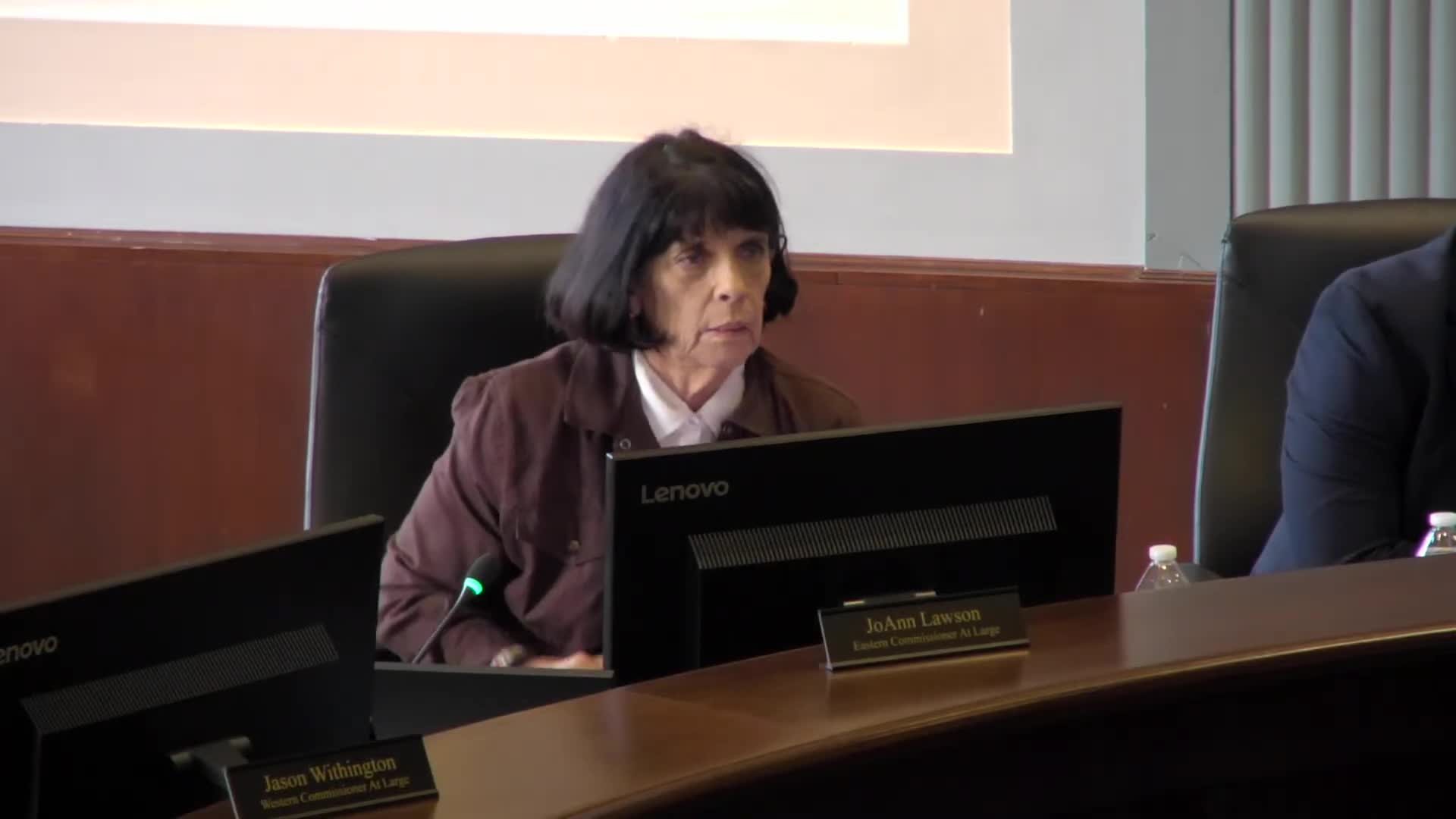Local Officials Discuss Community Concerns Over I Decker Quarry Blasting Impact
August 29, 2025 | Clay County, Missouri
This article was created by AI summarizing key points discussed. AI makes mistakes, so for full details and context, please refer to the video of the full meeting. Please report any errors so we can fix them. Report an error »

In the heart of Clay County, Missouri, a recent commission meeting revealed deep concerns among residents regarding the impact of underground blasting operations by iDecker. As the session unfolded, voices echoed the frustrations of citizens who felt their quality of life was being compromised by the blasts, which some described as palpable disturbances that could be felt in their homes.
One commissioner passionately recounted personal visits to affected neighborhoods, emphasizing the need for a closer examination of the blasting reports that had initially gone unnoticed in his spam folder. He expressed a desire for transparency, stating that the information should be readily available to all citizens, reinforcing the notion that public safety and community well-being should be prioritized.
The discussion took a poignant turn as the commissioner reflected on past experiences with environmental concerns, recalling a successful effort to halt a landfill project in Holt. This history of advocacy underscored the urgency of addressing current issues, as residents voiced fears reminiscent of previous battles against environmental threats. The commissioner urged fellow members to experience the disturbances firsthand, suggesting that personal engagement could foster a deeper understanding of the community's plight.
Amidst the dialogue, questions arose about the structural integrity of local properties, with rumors circulating about damage to a resident's barn. While the claims were disputed, they highlighted the anxiety surrounding the blasting activities. The commissioner noted that while iDecker had not exceeded its limits during his last inspection, other quarries had caused significant damage in the past, raising alarms about the potential for similar issues in the future.
As the meeting progressed, the commissioner called for state-level intervention, advocating for more rigorous monitoring of blasting operations. He emphasized the importance of collaboration with state representatives to ensure that residents' concerns were addressed adequately. The sentiment was clear: the commission must leverage its influence to protect the community, even if it meant navigating the complexities of local governance.
In closing, the commissioner reflected on the initial intentions behind moving operations underground, which were aimed at reducing environmental impact. However, the unexpected backlash from residents served as a stark reminder of the delicate balance between industrial progress and community welfare. As the meeting adjourned, the commitment to advocate for the citizens of Clay County remained resolute, with hopes that further investigations would lead to a resolution that honors both business interests and the well-being of the community.
One commissioner passionately recounted personal visits to affected neighborhoods, emphasizing the need for a closer examination of the blasting reports that had initially gone unnoticed in his spam folder. He expressed a desire for transparency, stating that the information should be readily available to all citizens, reinforcing the notion that public safety and community well-being should be prioritized.
The discussion took a poignant turn as the commissioner reflected on past experiences with environmental concerns, recalling a successful effort to halt a landfill project in Holt. This history of advocacy underscored the urgency of addressing current issues, as residents voiced fears reminiscent of previous battles against environmental threats. The commissioner urged fellow members to experience the disturbances firsthand, suggesting that personal engagement could foster a deeper understanding of the community's plight.
Amidst the dialogue, questions arose about the structural integrity of local properties, with rumors circulating about damage to a resident's barn. While the claims were disputed, they highlighted the anxiety surrounding the blasting activities. The commissioner noted that while iDecker had not exceeded its limits during his last inspection, other quarries had caused significant damage in the past, raising alarms about the potential for similar issues in the future.
As the meeting progressed, the commissioner called for state-level intervention, advocating for more rigorous monitoring of blasting operations. He emphasized the importance of collaboration with state representatives to ensure that residents' concerns were addressed adequately. The sentiment was clear: the commission must leverage its influence to protect the community, even if it meant navigating the complexities of local governance.
In closing, the commissioner reflected on the initial intentions behind moving operations underground, which were aimed at reducing environmental impact. However, the unexpected backlash from residents served as a stark reminder of the delicate balance between industrial progress and community welfare. As the meeting adjourned, the commitment to advocate for the citizens of Clay County remained resolute, with hopes that further investigations would lead to a resolution that honors both business interests and the well-being of the community.
View full meeting
This article is based on a recent meeting—watch the full video and explore the complete transcript for deeper insights into the discussion.
View full meeting
